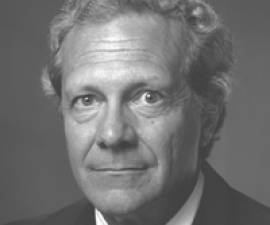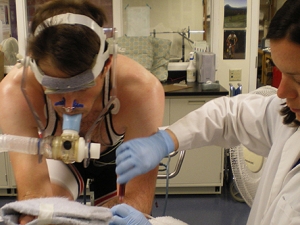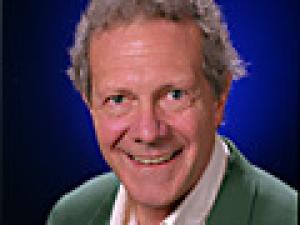

Research Bio
George A. Brooks is a professor in the Department of Integrative Biology. The research emphasis in the Exercise Physiology Laboratory is in the area of metabolic adjustments to exercise. In recent years, they have developed two working hypotheses: the "Lactate Shuttle," and the "Crossover Concept." Research on the Lactate Shuttle is to elucidate the pathways and controls of lactic acid formation and removal before, during and after exercise. This work involves studies on humans and animals, indirect calorimetry, isotope tracer technology, classic arterial-venous difference measurements, lactate and glucose clamp technology and muscle biopsies. As well, using in vivo studies and cell culture techniques they seek to determine the factors that determine the expression of proteins that regulate cellular proteins such as exist in the mitochondrial reticulum (the “powerhouse of the Cell”) and lactate transport proteins. In the main, work is of a basic nature, but with others they seek to identify the causes and develop treatment modalities for conditions in lactic acidosis in persons suffering from injuries and infections such as Traumatic Brain Injury, Heart Failure, inflammatory conditions and HIV infection. Research on the Crossover Concept is to describe and understand how the body selects combinations of fatty acids, carbohydrates and amino acids for use during sustained exercise and other conditions. Aspects of their work involve the effects of exercise training, gender, age, and high altitude on substrate utilization. Again, much of the work is of a basic nature, but results have direct implications for the prevention and management of metabolic inflexibility that contributes to obesity and Type 2 Diabetes in youth and aging. To support this work, significant research collaborations with other laboratories in the University of California and elsewhere have been established. These arrangements offer students, post-doctoral fellows, research staff, and visiting scientists the opportunity to work in an important and exciting area of science.
Research Expertise and Interest
exercise & environmental physiology, metabolism, lactate shuttle, crossover concept, lactate, lactic acidosis, traumatic brain injury, obesity, diabetes, Warburg Effect in cancer, aging biology, isotope tracer technology, arterial-venous difference measurements, clamp technology, muscle biopsies, cell culture, mitochondrial biogenesis, energy substrate partitioning, carbohydrate metabolism, lipid metabolism, fatty acid reesterification, menopause
In the News
Far From Toxic, Lactate Rivals Glucose as Body's Major Fuel After a Carbohydrate Meal
Rehabilitating lactate: from poison to cure
Lactate-uptake mechanism may fuel the injured brain
The same basic biological mechanism that helps athletes develop endurance on a treadmill may someday help to save and improve the lives of patients with traumatic brain injuries, according to UC Berkeley Professor George Brooks and colleagues at UCLA. ScienceMatters@Berkeley describes the research and its potential medical application.



